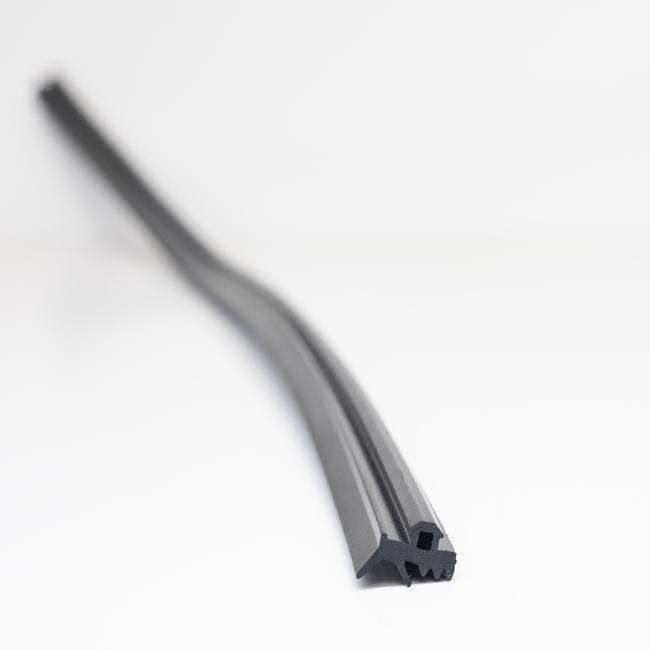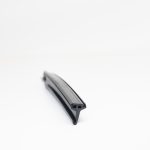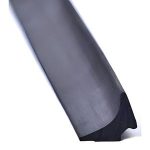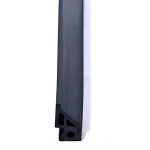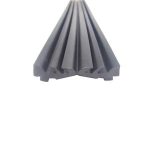Industrial seals are essential components used in a wide range of industrial applications to prevent the leakage of fluids or the ingress of contaminants into machinery or equipment. These seals play a critical role in maintaining the integrity and efficiency of various systems, ensuring they operate smoothly and reliably. Their significance extends across diverse industries, including manufacturing, automotive, aerospace, oil and gas, pharmaceuticals, agriculture, and more.
Here is a comprehensive description of industrial seals:
1. Types of Industrial Seals:
Industrial seals come in a variety of types, each designed to address specific environmental conditions, pressures, temperatures, and sealing requirements. Some common types include:
- Mechanical Seals: These are commonly used in pumps, compressors, and other rotating equipment to prevent leakage of fluids. Mechanical seals consist of two main components: a stationary element and a rotating element that create a dynamic seal interface.
- O-rings: These are simple, round seals typically made of rubber or elastomeric materials, used to create a static seal in applications where compression is needed.
- Gaskets: Gaskets are flat seals used to create a static seal between two flange faces. They are commonly used in pipelines, valves, and other equipment.
- Lip Seals: Also known as oil seals, these are used to prevent the leakage of lubricants or other fluids in rotating shaft applications, such as in automotive engines or industrial machinery.
- Hydraulic Seals: Designed for hydraulic systems, these seals ensure that high-pressure fluids do not escape and cause system inefficiencies or hazards.
- Pneumatic Seals: Used in pneumatic systems, these seals prevent the escape of compressed air or gas.
- Rotary Seals: These are designed to provide effective sealing in rotary applications, such as gearboxes, and maintain the separation of two different media.
2. Materials:
Industrial seals can be made from a variety of materials to suit specific application requirements. These materials include:
- Elastomers: Common elastomers used include nitrile rubber (Buna-N), silicone, EPDM, and fluorocarbon (Viton), each offering different chemical resistance and temperature capabilities.
- Metallic Seals: Made from metals like stainless steel, these seals provide durability and resistance to high temperatures and pressures.
- Polymer Seals: Polymeric materials like PTFE and UHMWPE are used in applications requiring resistance to aggressive chemicals and extreme temperatures.
- Composite Seals: These combine different materials to achieve a balance of properties, such as flexibility and durability.
3. Functionality:
Industrial seals serve several crucial functions, including:
- Leak Prevention: The primary role of industrial seals is to prevent the escape of liquids or gases from a sealed system.
- Contaminant Exclusion: Seals also prevent the entry of contaminants like dust, dirt, or moisture into a system, which is especially critical in sensitive applications like semiconductor manufacturing.
- Friction Control: In some cases, seals provide low-friction surfaces to enable smooth, controlled motion in mechanical systems.
- Pressure Management: Seals in hydraulic and pneumatic systems are essential for maintaining and controlling pressure within the system.
- Temperature Resistance: Seals must withstand extreme temperatures in applications like the automotive or aerospace industry.
- Chemical Resistance: Many seals must resist chemical exposure in industries where aggressive chemicals are present, such as the chemical processing industry.
4. Industries and Applications:
Industrial seals find use in a broad spectrum of industries and applications:
- Manufacturing: Seals are crucial in manufacturing processes, from sealing containers and pipelines to maintaining the integrity of heavy machinery.
- Automotive: Seals are present in engines, transmissions, suspension systems, and other components to ensure safe and efficient operation.
- Aerospace: In aircraft, seals are used in critical areas like engines, landing gear, and hydraulic systems.
- Oil and Gas: Seals are employed in oil drilling equipment, pipelines, and refineries to prevent leaks and ensure safety.
- Pharmaceuticals: Cleanroom environments in pharmaceutical manufacturing rely on seals to maintain sterility.
- Agriculture: Agricultural machinery, such as tractors and combines, use seals to protect components from the elements.
5. Design and Maintenance:
The design of industrial seals is a complex process, taking into account factors like operating conditions, material compatibility, and pressure requirements. Regular maintenance and inspection are essential to ensure seals continue to perform optimally, as wear and tear over time can compromise their effectiveness.
In conclusion, industrial seals are indispensable components in various industrial applications, providing critical functions that ensure the safety, efficiency, and integrity of systems and equipment. The wide array of seal types, materials, and applications highlights their versatile role in modern industry.
